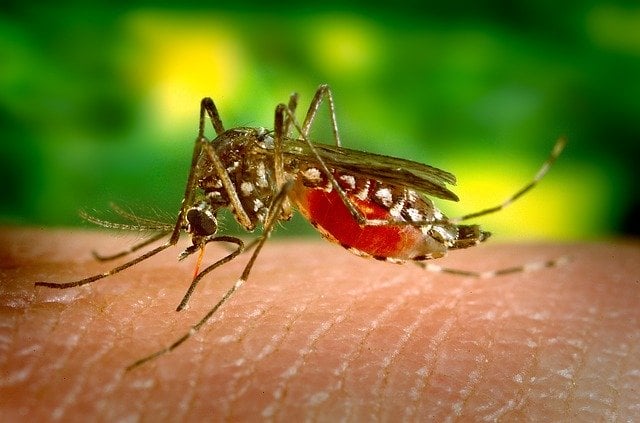The regional government of Andalusia has said that 12 out of 19 people suffering from meningitis symptoms in the province of Seville, have tested positive for West Nile fever, with the remaining seven still awaiting results.
Seventeen of the 19 cases have been hospitalised, and seven people are currently in intensive care, reports Reuters.
Nile fever is transmitted through mosquito bites, and causes a high fever, severe headache, stiff neck, disorientation, as well as vomiting and diarrhoea.
Also known as the West Nile virus, it typically produces mild symptoms, however some serious cases can also experience muscle tremors, seizures and partial paralysis.
In a small percentage of cases, it can lead to serious complications such as inflammation of the brain and spinal cord, with potentially fatal consequences.
The regional authorities in Andalusia have recommended that people install mosquito nets and screens in their homes to avoid getting bitten.
Originally from East Africa, the disease has spread in Europe, Asia and North America. Several cases have been spotted in Spain over the past decade.
Recent cases have also been detected throughout the southern states of the US.
The virus belongs to the same strand as the Zika virus, which caused outbreaks in North and South America in 2015 and 2018.
Greece has reported 10 cases of Nile fever and one death so far this summer, while Romania has reported two cases, according to the European Centre for Disease Control.
The new cases of West Nile fever in Seville have occurred just as Spain tries to deal with the highest number of Covid-19 infections in western Europe, with 320,000 diagnosed cases and more than 28,000 deaths so far.



 Please whitelist us to continue reading.
Please whitelist us to continue reading.
Member comments